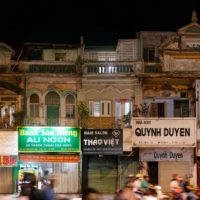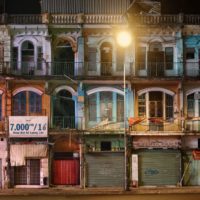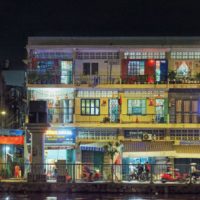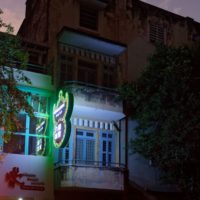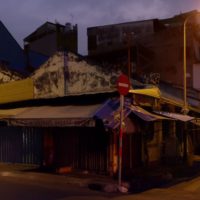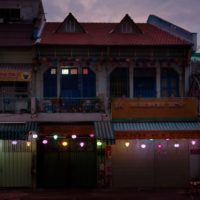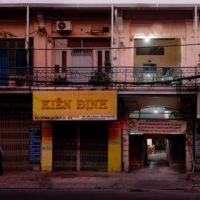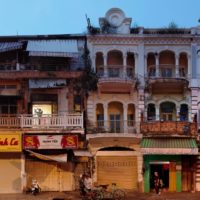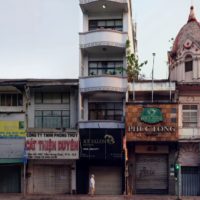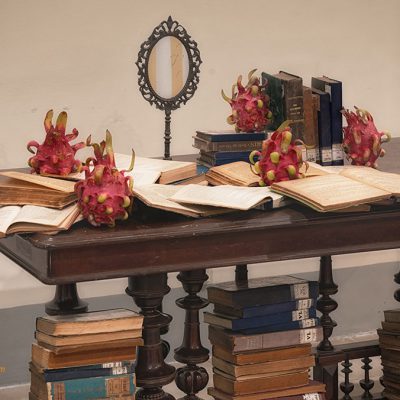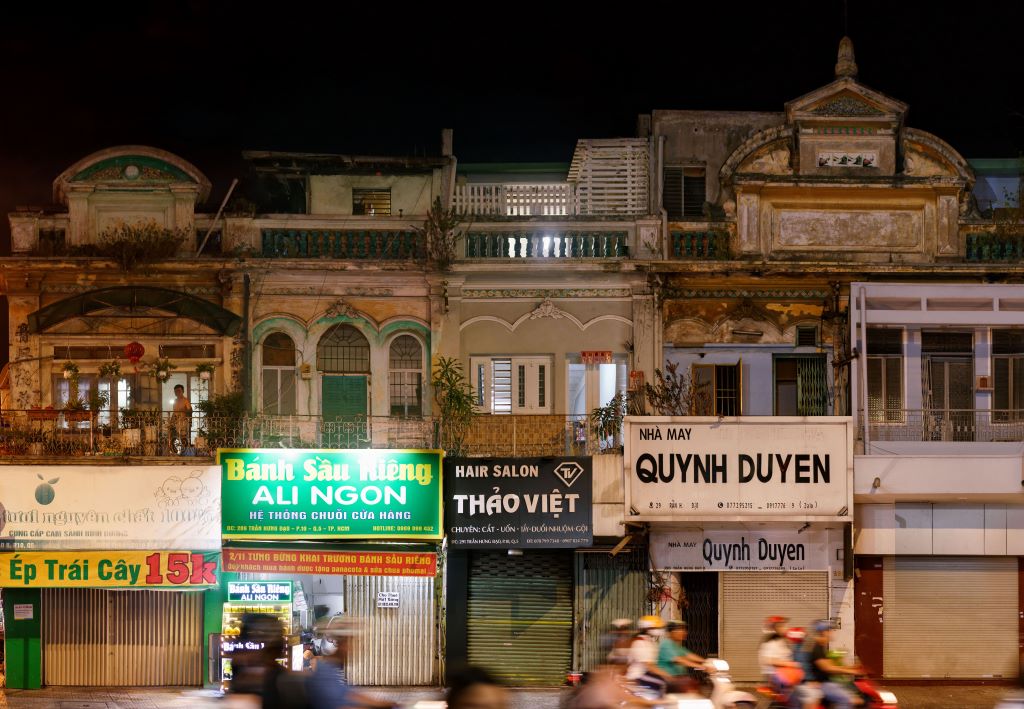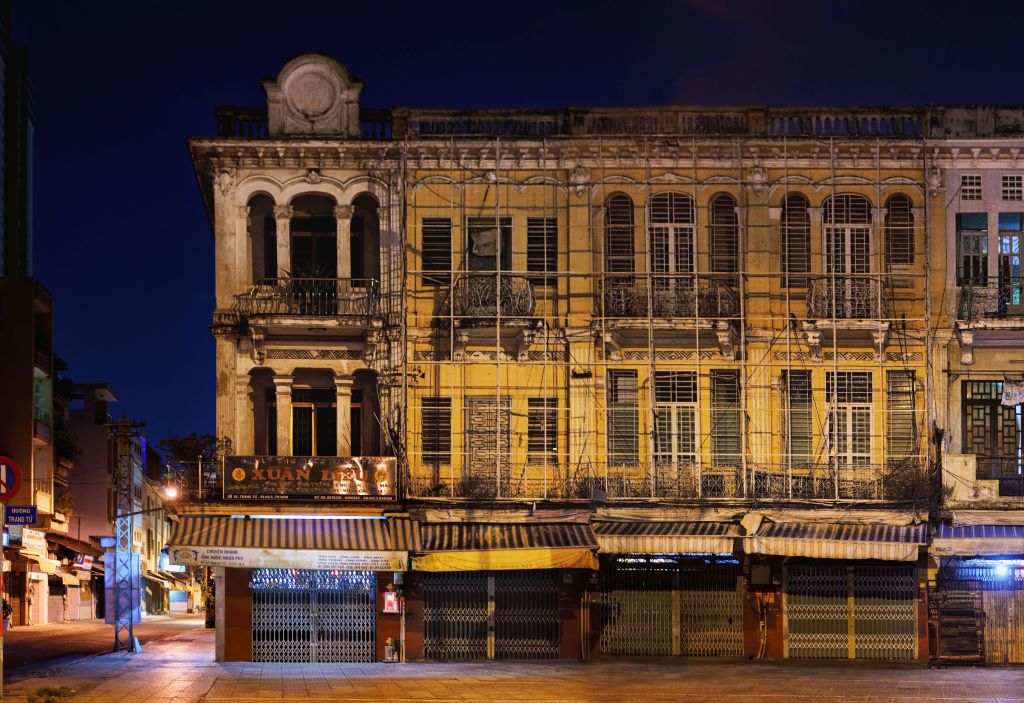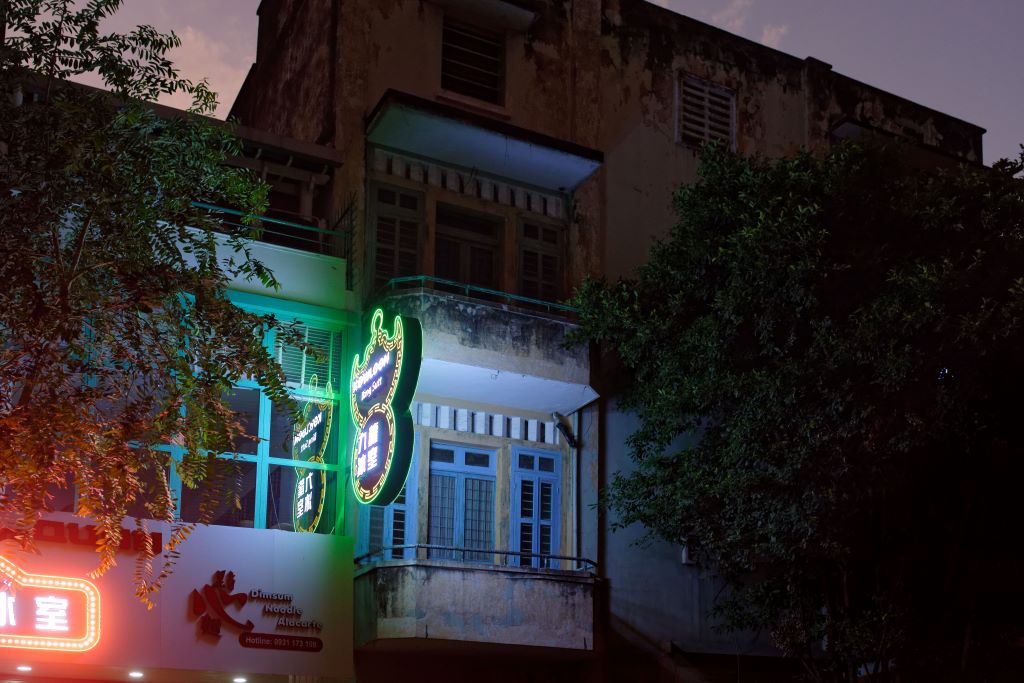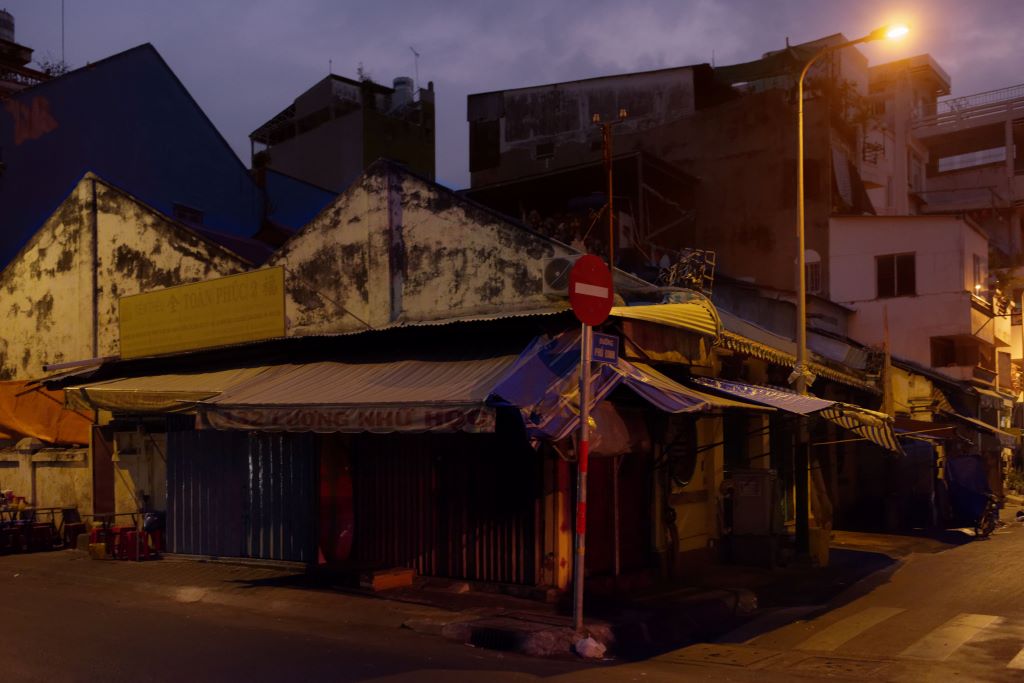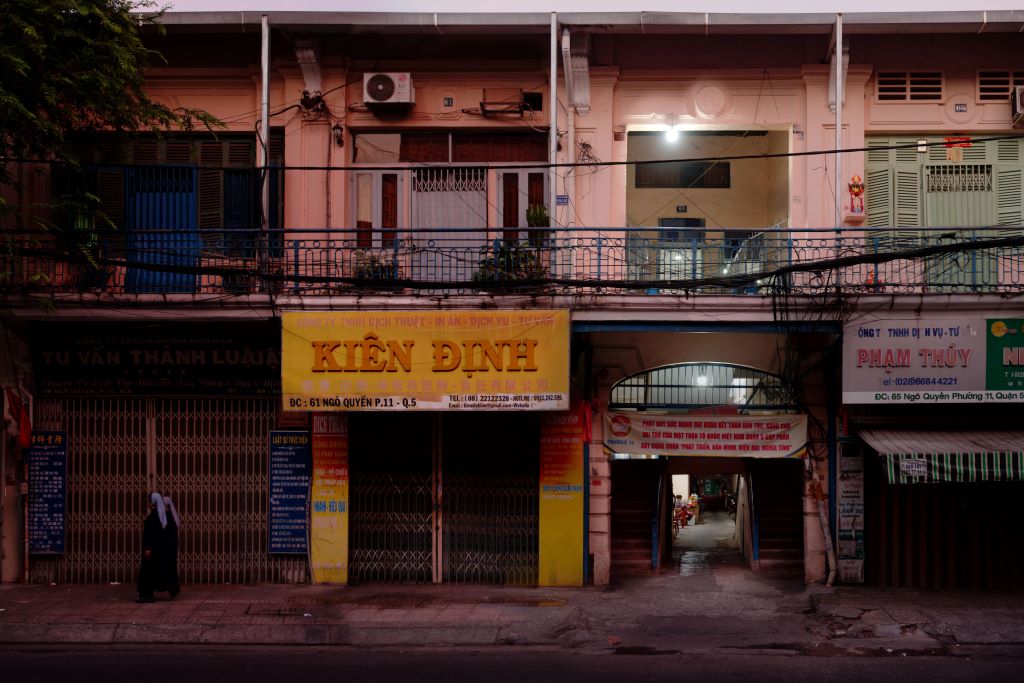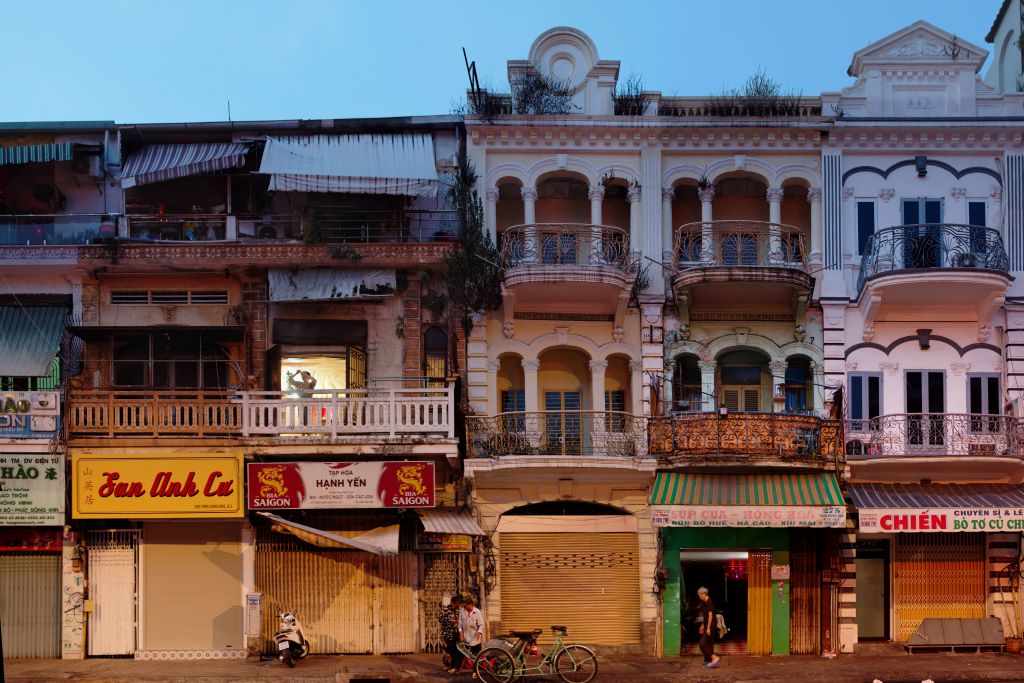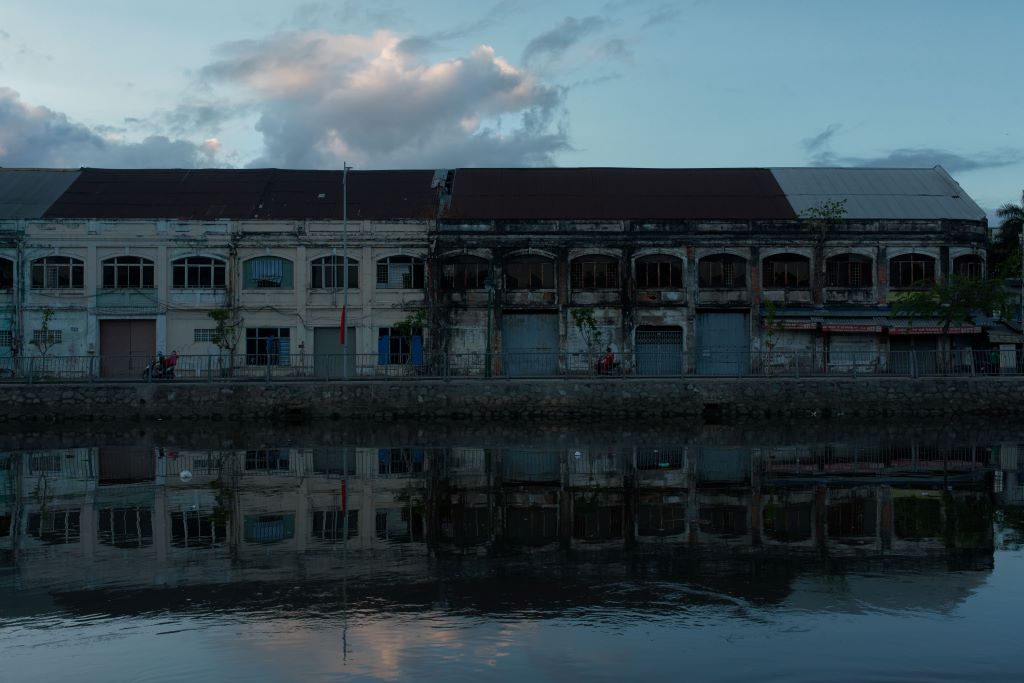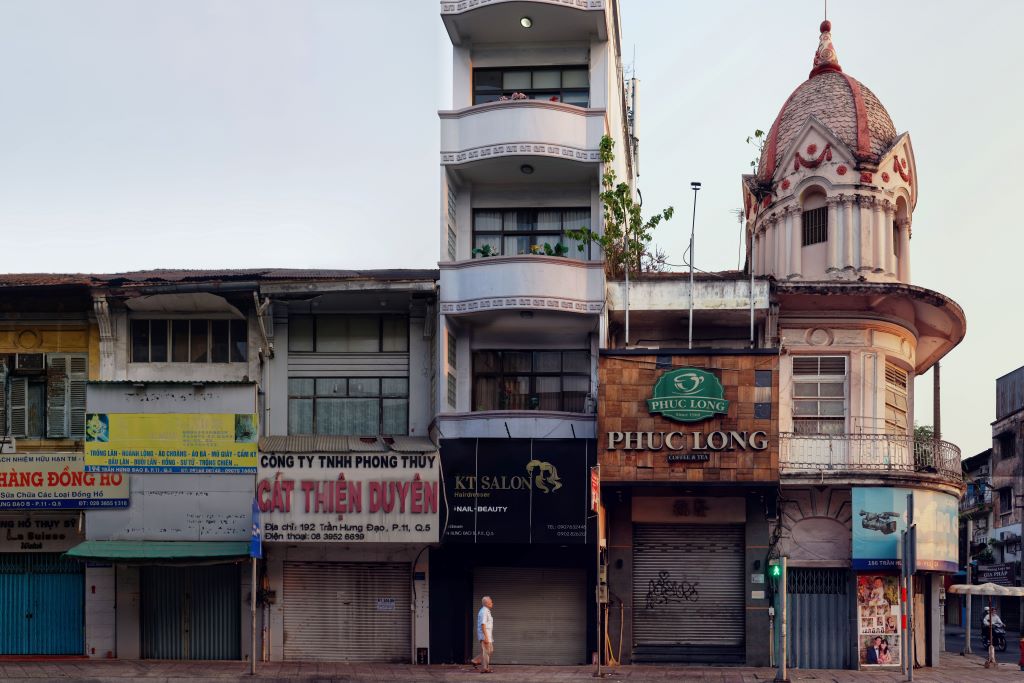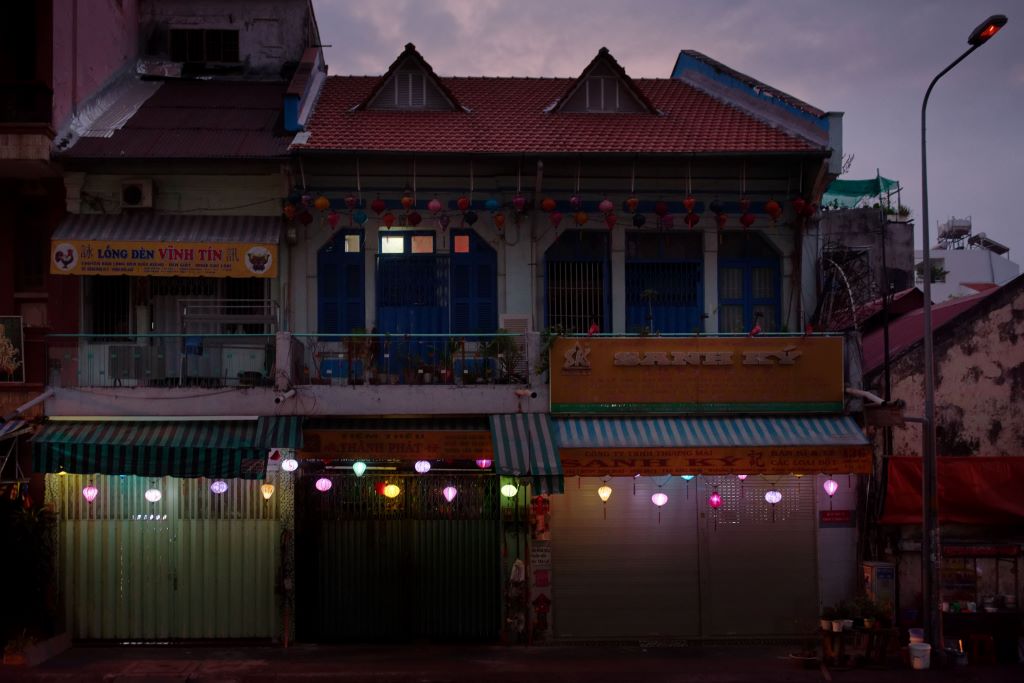
Cholon – Between Twilights, series displayed at the Biennale Photo Hanoi 2025
Some cities once experienced a so-called golden age. Their legends originate either from their rich history or from something uniquely special that sets them apart from others. Cholon, founded in the late 18th century, was never part of Saigon—the city now known as Ho Chi Minh City. Its name means “big market,” reflecting its role as a vibrant Chinese trading community and serving as the commercial and cultural hub for Chinese immigrants settling in Saigon. Unlike other Chinatowns around the world, which are often started from the main city, Cholon existed as a distinct enclave at its birth.
As a little sister to Saigon, Cholon possesses its own character and strength—qualities that each administration during the French Indochina era and the American War had to contend with. The vibrant night scene filled with casinos and neon lights has gradually faded, replaced by the lively hum of endless motorbikes
The series of photos was taken during the dim hours of twilight. Not really known there are actually two moments of twilight: the brief period after the sun disappears and just before the dawn of dawn, when the first light begins to emerge. This particular light encapsulates the very essence of photography—an art born from the ability to write with light but within specific time.
On the invention of Photography capturing an image in daylight could take several minutes, as silver grains on film needed time to record the scene. I aimed to evoke this sense of “slow” light that twilight embodies—reminding us of both patience and urgency. Twilight’s fleeting nature symbolizes the brief window between the sun’s disappearance and reappearance, as well as the transition from day to night and night to day.
This dichotomy resonates with Cholon itself, where the true moment of its golden age—its beginning or end— is uncertain. All that remains are these buildings—last remnants of a sister city to Saigon, once too vibrant and too tumultuous to last long.
But it happened once upon a time.



